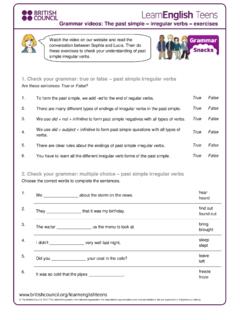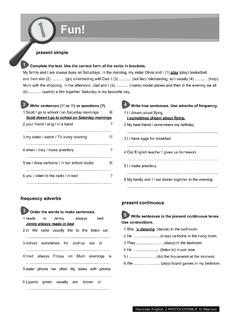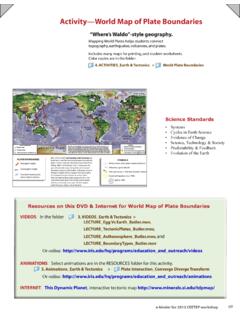Transcription of MENTAL RESIDUAL FUNCTIONAL CAPACITY ASSESSMENT
1 MENTAL RESIDUAL FUNCTIONAL CAPACITY ASSESSMENT . PROVIDER'S NAME: _____. PROVIDER'S TELEPHONE: _____. PATIENT'S NAME: _____. PATIENT'S DATE OF BIRTH: _____. PATIENT'S SS#: _____. Please answer the following questions about your patient's MENTAL health impairment(s) and how his or her ability to perform certain job functions is affected by the impairment. Your answers should be based on the evidence in the patient's file and on your personal contact with and observations of the patient. 1. Date treatment began: _____. Frequency of treatment (weekly / bi-weekly / monthly) _____. Date of last appointment: _____. 2. Current Diagnoses: Axis I: _____.
2 Axis II: _____. Axis III: _____. Axis IV: _____. Axis V: _____. 3. Highest GAF this past year: _____. 4. Current GAF: _____. 5. Prognosis: _____. 6. Are you aware of any physical medical condition that may contribute to the patient's MENTAL impairment? yes / no If yes, please describe: _____. _____. 7. What treatments has the patient undergone? _____. _____. 8. Has the patient's impairment lasted, or is it expected to last, at least 12 months? yes / no 9. Do you believe the patient is a malingerer? yes / no Nolo 2013 _____ (provider initials). 10. Is there evidence of current drug or alcohol abuse? yes / no If so, would the impairment exist in the absence of the drug or alcohol abuse?
3 Yes / no 11. Is the patient compliant with treatment? yes / no 12. Based on your personal ASSESSMENT of the patient, please circle the word that best describes his or her functioning in the associated category, using the definitions provided below. Assume that these activities must be performed on a regular and sustained basis (40 hours per week). None: There are no limitations on the ability to function in this area. Mild: There are limitations on ability to function but they are mild or transient. Moderate: The ability to function in this area is less than marked but more than mild. Marked: The ability to function in this area is seriously limited.
4 Extreme: The ability to function in this area is precluded. Not Ratable: There is no evidence available to rate the ability to function in this area. I. UNDERSTANDING AND MEMORY. a. The ability to remember locations and work-like procedures. None Mild Moderate Marked Extreme Not Ratable b. The ability to understand and remember very short and simply instructions. None Mild Moderate Marked Extreme Not Ratable c. The ability to understand and remember detailed instructions. None Mild Moderate Marked Extreme Not Ratable II. SUSTAINED CONCENTRATION AND PERSISTENCE. a. The ability to carry out very short and simple instructions.
5 None Mild Moderate Marked Extreme Not Ratable b. The ability to carry out detailed instructions. None Mild Moderate Marked Extreme Not Ratable c. The ability to maintain attention and concentration for extended periods. None Mild Moderate Marked Extreme Not Ratable d. The ability to perform activities within a schedule, maintain regular attendance, and be punctual within customary tolerances. None Mild Moderate Marked Extreme Not Ratable Nolo 2013 _____ (provider initials). e. The ability to sustain an ordinary routine without special supervision. None Mild Moderate Marked Extreme Not Ratable f. The ability to work in coordination with or proximity to others without being distracted by them.
6 None Mild Moderate Marked Extreme Not Ratable g. The ability to make simple work-related decisions. None Mild Moderate Marked Extreme Not Ratable h. The ability to complete a normal workday and workweek without interruptions from psychologically based symptoms and to perform at a consistent pace without an unreasonable number of and length of rest periods. None Mild Moderate Marked Extreme Not Ratable III. SOCIAL INTERACTION. a. The ability to interact appropriately with the general public. None Mild Moderate Marked Extreme Not Ratable b. The ability to ask simple questions or request assistance. None Mild Moderate Marked Extreme Not Ratable c.
7 The ability to accept instructions and respond appropriately to criticism from supervisors. None Mild Moderate Marked Extreme Not Ratable d. The ability to get along with coworkers or peers without distracting them or exhibiting behavioral extremes. None Mild Moderate Marked Extreme Not Ratable f. The ability to maintain socially appropriate behavior and to adhere to basic standards of neatness and cleanliness. None Mild Moderate Marked Extreme Not Ratable IV. ADAPTATION. a. The ability to respond appropriately to changes in the work setting. None Mild Moderate Marked Extreme Not Ratable Nolo 2013 _____ (provider initials).
8 B. The ability to be aware of normal hazards and take appropriate precautions. None Mild Moderate Marked Extreme Not Ratable c. The ability to travel in unfamiliar places or use public transportation. None Mild Moderate Marked Extreme Not Ratable d. The ability to set realistic goals or make plans independently of others. None Mild Moderate Marked Extreme Not Ratable e. The ability to tolerate normal levels of stress None Mild Moderate Marked Extreme Not Ratable 14. Would your patient's impairment substantially interfere with his or her ability to work on a regular and sustained basis at least 20% of the time? yes / no 15.
9 How often would your patient need to miss work each month because of his or her MENTAL impairment or for treatment of the MENTAL impairment? _____ days per month 16. Do you believe that your patient can work on a regular and sustained basis in light of his or her MENTAL impairment? yes / no Please explain: _____. _____. _____. _____. _____. 18. Do you believe the patient can manage his or her own funds? yes / no Please explain: _____. _____. _____. _____ _____. DATE SIGNATURE. _____. PRINT NAME. _____. YOUR CLINIC / FACILITY / OFFICE. Nolo 2013.







